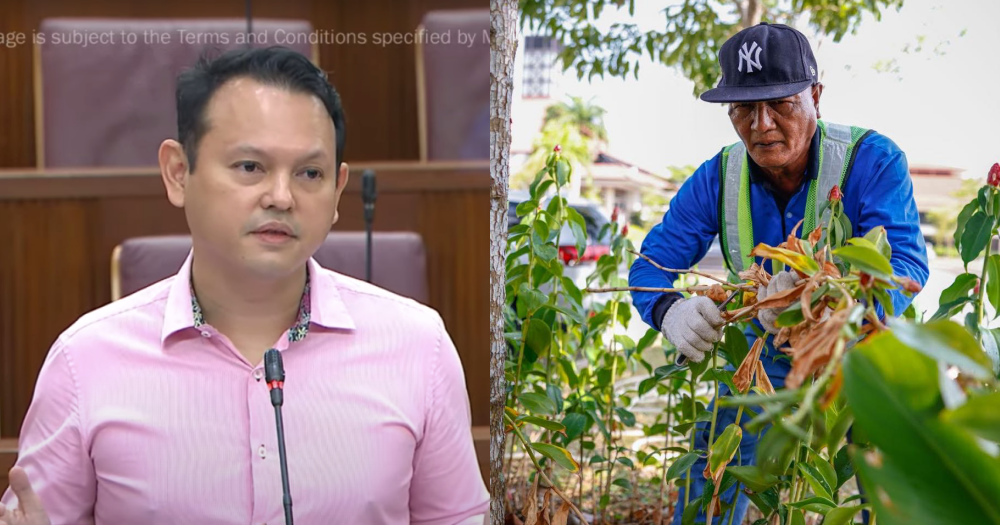Follow us on Telegram for the latest updates: https://t.me/mothershipsg
Senior Minister of State for Manpower Zaqy Mohamad said in Parliament today (Sep. 14) that Singaporeans can expect cost increases as the government moves to implement higher salaries for lower-wage workers.
He then urged Singaporeans to not "accuse firms unfairly of profiteering", saying that it is expected that businesses will have to adjust prices to accommodate the higher salaries.
Zaqy was answering questions from Members of Parliament (MP), who asked how the ministry would ensure that businesses will not profiteer under the guise of having to pay higher wages under the Local Qualifying Salary (LQS) and Progressive Wage Model (PWM).
Consumers have to do their part
Some MPs raised concerns that the higher salaries may lead to "opportunistic profiteering" by businesses, which may unfairly and unreasonably raise prices, citing the implementation of the LQS.
In his response, Zaqy said that Singaporeans "have to expect some degree of cost increase to accommodate higher salaries for our lower-wage workers", and that "we as consumers have got to do our part in support of our lower-wage workers".
Zaqy stressed that the proposed wage increases were carefully calculated with guidance from the National Wages Council, such that "wage increases will be sustainable for workers, employers, and consumers".
He added:
"I therefore hope that Singaporeans will not accuse firms unfairly of profiteering, but let’s also work together to address any unreasonable price increases or any unreasonable practices."
Lower-income households will be able to cope with price increases
PAP's Ng Ling Ling also asked whether the expected cost increases will outstrip the benefits of the PWM for lower-income households.
Zaqy replied that low-income households will stand to gain from the higher wages resulting from the PWM.
He cited data that real income (income after taking into account inflation) has grown 39 per cent cumulatively for resident workers in the 20th percentile from 2009 to 2019.
This growth is faster than the 33 per cent increase for the median worker in the same time frame, he added.
He also mentioned the various schemes in place, such as ComCare, to help low-income households financially.
Hawker stalls, heartland shops exempt from LQS
Progress Singapore Party Non-Constituency MP Hazel Poa sought clarification on how many Singaporean employees who currently earn below S$1,400 per month will not benefit from the LQS scheme.
Zaqy replied that 23 per cent of the 103,000 full-time resident employees who earn less than S$1,400 (based on 2020 numbers) will not be eligible for the LQS, as they are employed in businesses that do not hire foreign workers.
Zaqy added that the "vast majority" of these businesses are "very small" and hire fewer than 10 workers.
These include "small family operations such as hawker stalls and heartland shops". He said that if the LQS were to apply to these businesses, they would likely be unable to cope:
"We are all familiar with these micro-businesses, familiar faces in our neighbourhoods and typically having family members – who are spouses, who are children, or relatives helping out.
They don’t have the business scale or reach, and we are mindful that sudden wage shifts to these micro-businesses can result in business failure. The last thing we want is job losses for these family businesses."
However, Zaqy reassured that these workers should still see "meaningful increases in their wages over time due to market forces".
Follow and listen to our podcast here
Top photos via MCI/YouTube and Tan See Leng/FB
If you like what you read, follow us on Facebook, Instagram, Twitter and Telegram to get the latest updates.
